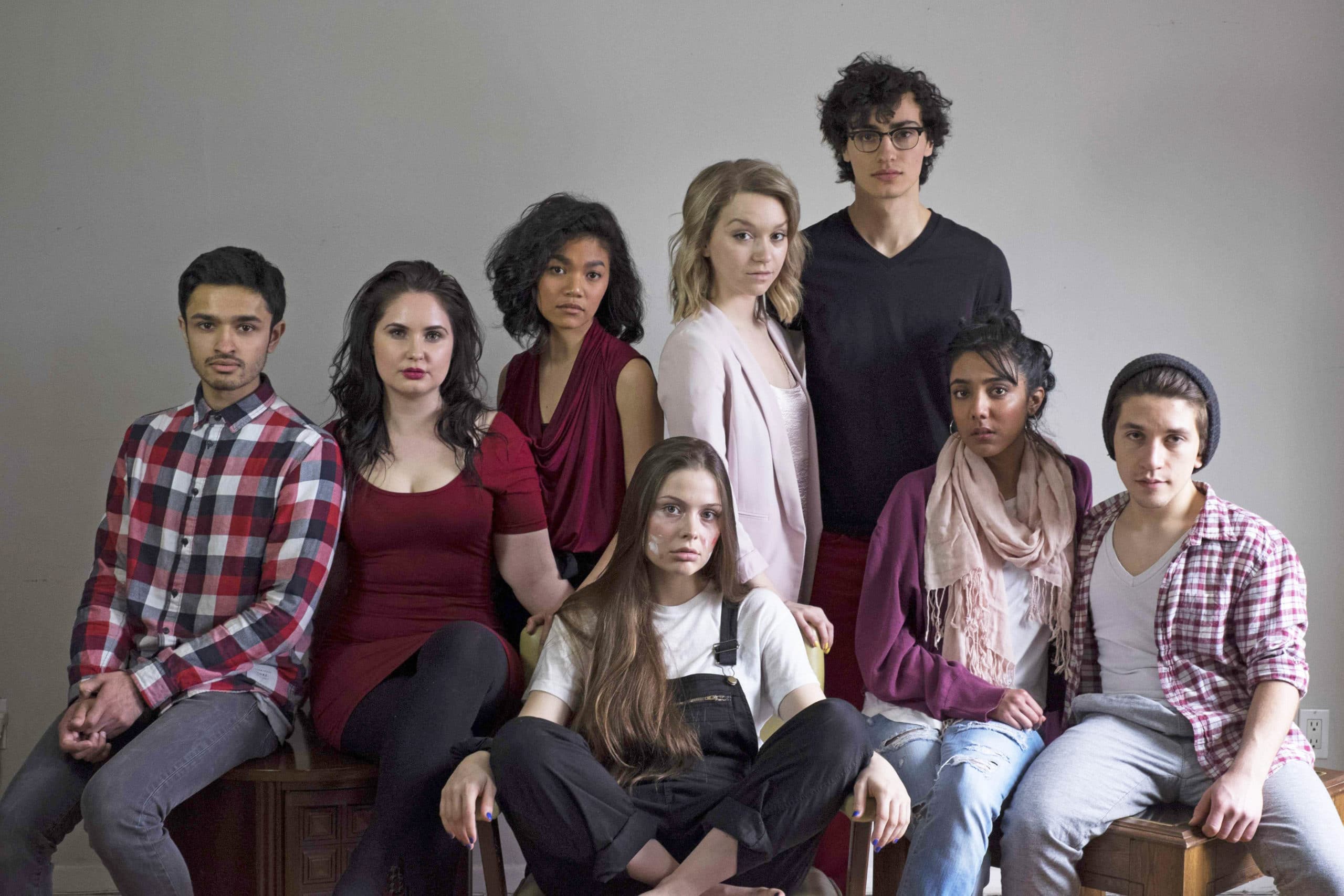Layered, witty and somber, Pencil Kit Productions’ play Perfect Couples delivers an empathetic approach to the issue of mental illness, and provides audiences with a cathartic display of the complexity of human intimacy.
Hannah Whitmore and Belinda Corpuz star as Val and Janine, respectively, a young couple dealing with their own – and each other’s – mental health issues. They’re part of a small community of other 20 somethings, including Marcin and Leyna, the underachieving stoner couple, Sophie and Henry, unable to put healthy distance between each other, and Rachel and Mike, the community’s “perfect couple” whose relationship is spiralling behind closed doors.
Val, a young artist, is dealing with the trauma of losing her mother in a car accident, and believes Janine is cheating on her with Rachel. Janine, who has a nondescript position at a bank, struggles with anxiety.
Where Perfect Couples excels is in honesty. Playwright Mitchell Janiak approaches honesty in this play as something to impart relentlessly, but with empathy. I’m reminded of the medicine Val and Janine continuously remind each other to take: the idea of it can make us sick and tired, but we remind each other of it because we care.
In centring our story around two people in a relationship, both dealing with their own issues, Perfect Couples breaks away from a common narrative portrayed around having a friend or loved one with mental illness: that it’s typically a singular person proving a burden to someone else with their illness.
In this play, Val and Janine wrestle between trying to care for themselves, and care for each other, even when both may not be in the best shape to do so. It can be read as mutual destruction, but it’s also mutual care – what being in a relationship really centres around.
Claren Grosz’s direction makes for a consistent and powerful performance. The stage direction, soundtrack, audio mixing and lighting assist in the portrayal of the lucidity of the narrative, as seen through Val’s perspective in the majority of scene. At several key points, we can’t fully know what’s real and what’s a fabrication, in the same way that Val cannot know if Janine cheated on her or not. This ensemble delivers great chemistry, particularly Whitmore and Corpuz. Arianna Marquis as Val’s “antagonist” Rachel, extensively trained in theatre and widely experienced, is a compelling force in the narrative.
All the characters in the play are people you can root for. This isn’t because they’re endearingly virtuous. It’s for the same reason some of the simplest lines or actions cause roars of laughter from different members of the Toronto audience: because you know them. You may have went to school with them, been friends with them, dated them, or perhaps you were them. Particularly the more awkward or painful parts of yourself.
Finally, Perfect Couples succeeds in emotional subtlety, and that in the end is important. For the story to impact, there has to be a natural connection with the audience. This is rarely achieved with abrasion.
Val and Janine are a couple you want the best for, even after learning of the mutual destruction that lies underneath the vision of a perfect couple. When they can’t achieve it themselves, you see why. You don’t blame them, however, for wanting more.
The play climaxes in Val’s suicide attempt, and ends in a haunting decrescendo. Janine finds Val in their home and wordlessly comes to her side. Val is able to vomit up the pills she took. Janine stays and soothingly rubs her back. No one says a word. The stage fades to black.









